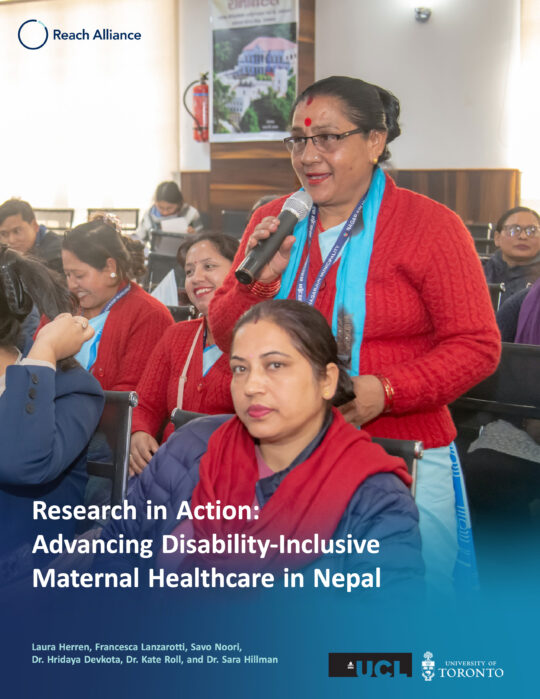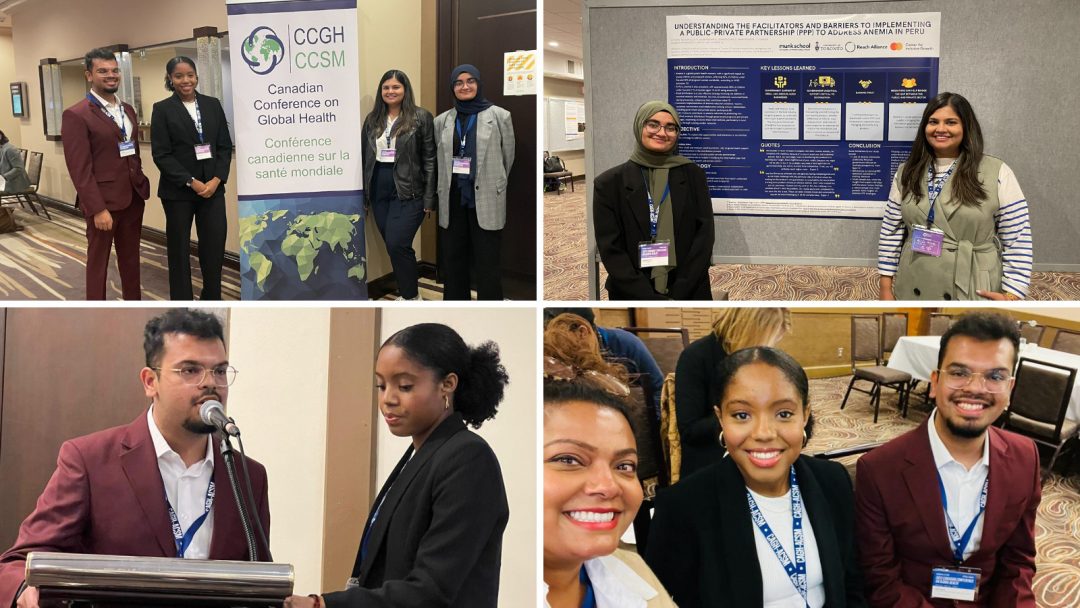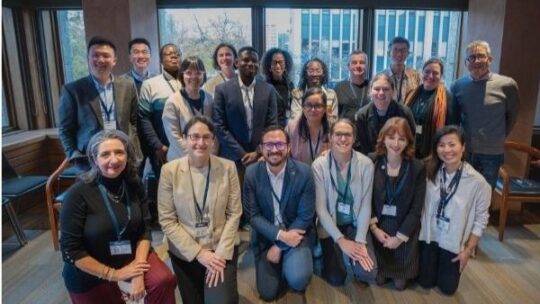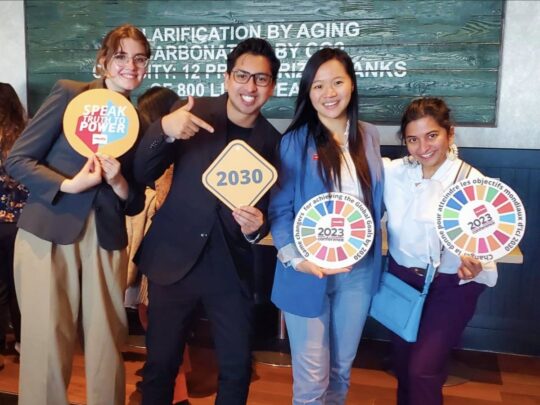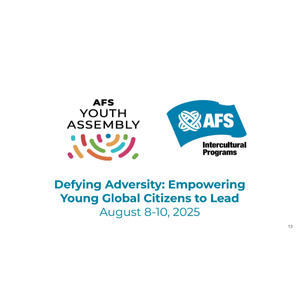From rhetoric to action: moving policy, research, and practice was the theme of the 2023 Canadian Conference on Global Health in Ottawa. This theme underscores the imperative to build on discussions and publications in a way that leads to concrete, impactful actions. While knowledge dissemination remains vital, the conference’s central focus was to explore how the global health community, encompassing scientists, practitioners, clinicians, advocates, and citizens, can transform rhetoric into tangible results within the constraints of limited resources and wavering political will. Over the course of three days, University of Toronto Reach researchers attended the Canadian Conference on Global Health. Adib Syed and Gabrielle Dume from Team Barbados (2022-23) with faculty mentor Dr. Leanne De Souza-Kenney in attendance and Kainat Bashir and Nazihah Alam from Team Peru (2022-23) had the opportunity to present research on behalf of their teams. Here’s what they had to share about their experiences.
Adib and Gabrielle, your case study is focused on community-led childhood obesity prevention initiatives in Barbados. What did you learn about ensuring no one is left behind when striving for health equity?
Using a multidisciplinary approach to achieve health equity was one of the main takeaways from the Canadian Conference on Global Health. For example, during one of the sessions I attended, we discussed how artificial intelligence can be used to provide people in remote areas with tools that would give them answers to inquiries about their health status much faster than if they had to travel great distances to a medical facility. Artificial intelligence has a great deal of promise to ensure that no one is left behind, even though it may not appear relevant to health in the traditional sense. – Adib
The importance of community partnership and including those who have been historically left behind to build a more sustainable future was another key insight from the conference. Community members have the most knowledge of the conditions affecting their communities and can provide insights into what is workable and appropriate for them. Policymakers must combine top-down and bottom-up approaches to support equitable policy creation and implementation. – Gabrielle
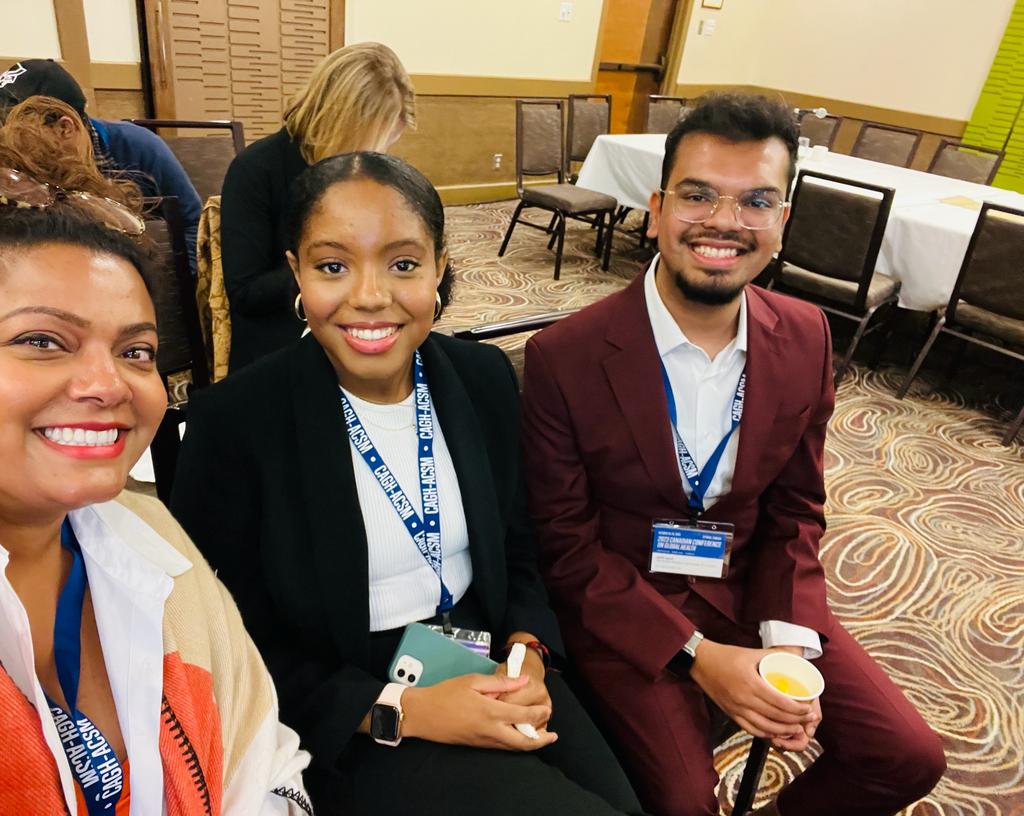
Nazihah, your case study intervention includes the blending of public and private sectors to incentivize the distribution of iron-fortified cookies to vulnerable groups. Was fostering partnerships in global health discussed and how does this relate to your Reach research?
The topic of equity within partnerships in global health was a huge focus, particularly on the conference’s second day. One workshop highlighted the value of checking in to see how each partner feels throughout the engagement as a way of mitigating the power imbalance between donors and recipients. There was also an interesting discussion on undervaluing non-monetary stakeholders, and whether their credibility and the weight of their contributions is sometimes overlooked as a result. These themes relate to our research and encourage us to better understand the cultural context and how equity plays a role in public-private partnerships in the distribution of iron-fortified cookies. Overall, it was great to see multidisciplinary participants come together at one conference and showcase their various research projects. I loved seeing how passionate researchers were about their projects and it was uplifting to see the range of work being done to reach those hardly reached.
Kainat, the conference theme was from rhetoric to action, what is one key takeaway from the Conference that resonated with you?
The conference highlighted the importance of decolonizing our approaches to addressing problems in the global health context. Current approaches can be extractive and reinforce negative power dynamics and inequities. Therefore, it is essential to design interventions and research that are collaborative, promote inclusion, and are community-driven. Attending this conference was a great learning and networking opportunity. It made me reflect on my role as a researcher and the importance of developing meaningful collaborations or partnerships with the populations we study to optimize outcomes.
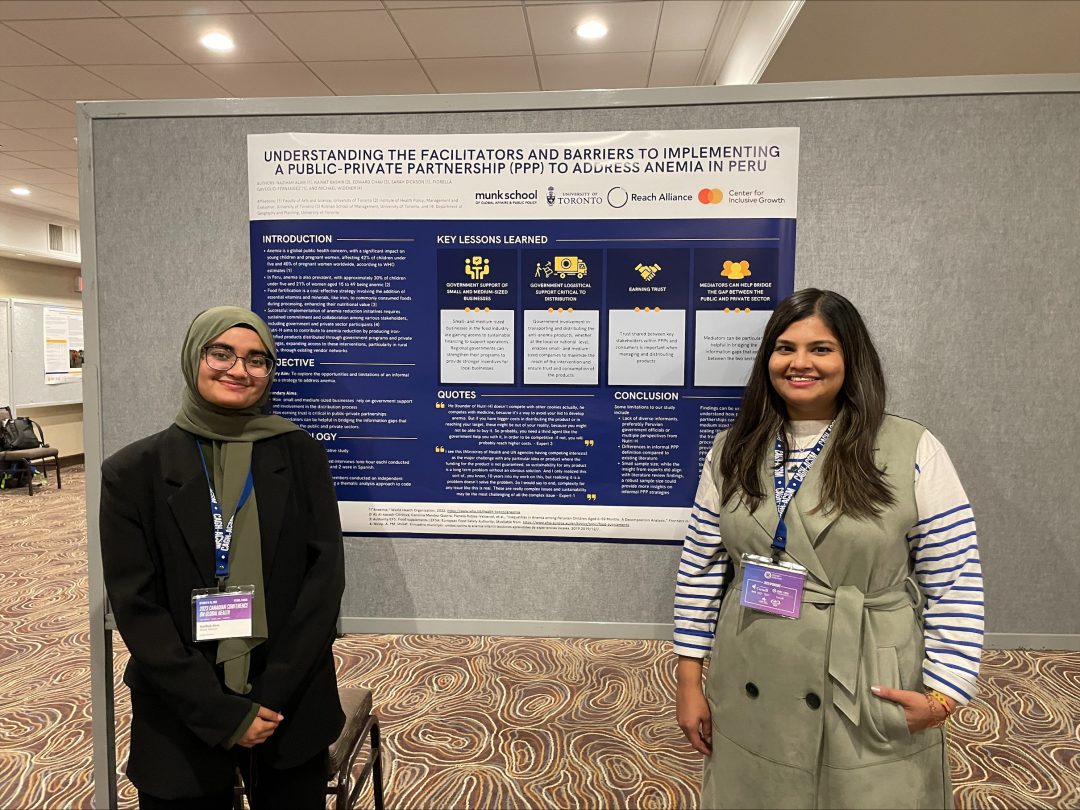
Sharing actionable Reach research insights at global interdisciplinary convenings provides an opportunity to broaden our knowledge base and perspective, challenge our assumptions, and contribute to the evidence base on reaching those who are being left behind. Reach research teams have taken up many knowledge translation approaches to share and amplify their case study findings. Find out more by checking out the Learning page on our new website here! Have an idea for a knowledge deliverable? Reach out to the Reach Alliance communications team to share your pitch here.
